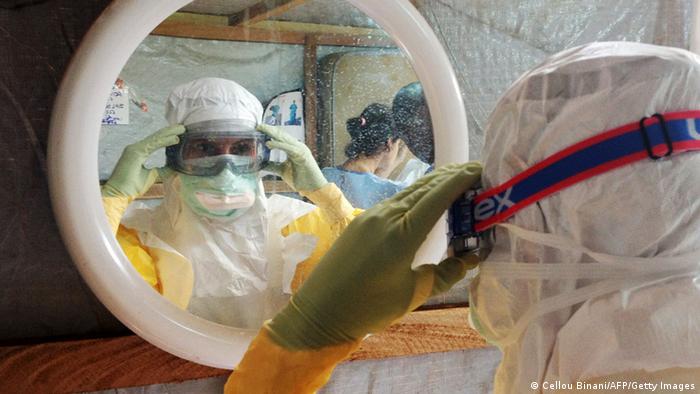
Sierra Leone declared a state of emergency following the outbreak of the deadly Ebola virus, which also feared could spread to continental Europe and Asia.
President of Sierra Leone, Ernest Bai Koroma announced a public health emergency to tackle the spread of the Ebola outbreak worst recorded in history. President Koroma also ordered security forces to keep the quarantine area at the center of the spread of the deadly virus.
Hard policy package addressing the spread of Ebola previously announced by its neighbors, Liberia on Wednesday night.
Koroma also announced that he canceled a trip to Washington to show the United States-Africa summit next week, due to the Ebola crisis that attacked his country.
Ebola virus is highly contagious responsible for the deaths of 672 people in West African countries: Liberia, Guinea and Sierra Leone, according to the World Health Organisation statement.
Threatening Europe and Asia
Meanwhile, the feared Ebola outbreak could spread to other continents. Humanitarian organization Doctors Without Borders (MSF) said the crisis menyengkeram West Africa it is only going to get worse and warned there was no overall strategy to deal with the worst outbreak of Ebola that has ever happened in this world.
Bart Janssens, MSF operations director warned that governments and countries and international organizations do not have a "holistic perspective" on how to tackle this epidemic.
"The epidemic is unprecedented, totally out of control and this situation will only get worse, because it (the virus) is still spreading, especially at some point in Liberia and Sierra Leone," he said.
"If the situation does not improve quickly, there is a real risk of new countries will be infected," he told the daily La Libre Belgique.
The Hong Kong government announced it would take steps such as quarantine for suspected cases, even a woman who arrived from Africa with Ebola-like symptoms, after laboratory tests, the results are negative.
International Civil Aviation Organization (ICAO) has been in talks with world health officials linked the steps that can be taken to stop the spread of Ebola.
In the UK, where one has examined the laboratory and declared negative, Foreign Secretary Philip Hammond said the case is "a serious threat".
An emergency meeting has decided that the best approach is to provide "additional resources to cope with the disease at its source" in West Africa, he said.
Ebola victims can kill in a matter of days, marked a high fever and muscle aches, vomiting, diarrhea, and in some cases organ failure and bleeding nonstop. (Read: Mystery Deadly Ebola Virus)
Since March, there were 1,201 cases of Ebola and 672 of them ended in death, according to WHO data.